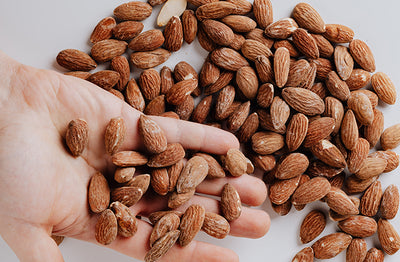You’ve probably heard the term intermitted fasting (IF) doing the rounds recently because it’s currently one of the world’s most popular health and
fitness trends. People are using it to improve their health,
lose weight and simplify their lifestyle.
But if you aren’t exactly sure what it is, how it works or how to do it this is the guide for you!
What is IF?
IF is an eating pattern that cycles between periods of fasting and eating. Meal timing schedules cycle between voluntary fasting and non-fasting over a given period. IF doesn’t specify
what foods you should or shouldn’t be eating but rather
when you should be eating them. And because IF doesn’t specify what foods you should eat it’s not considered a diet in the conventional sense but an eating pattern.
If you decide to give IF a go, there are several methods you can choose from, which all involve splitting the day or week into different eating and fasting periods.
What are the popular IF methods?
-
The 16/8 method: This method involves skipping breakfast and restricting your daily eating period to 8 hours, such as 12pm – 8pm, fasting for a 16-hour period in between.
-
Eat-Stop-Eat: This method involves fasting for 24 hours, one or two non-consecutive days a week, for example by not eating from dinner one day until dinner the next day.
-
The 5:2 diet: This method involves limiting yourself to 500–600 calories on two non-consecutive days a week but eating your regular amount on the other 5 days.
- The 16/8 method is generally considered to be the simplest and most sustainable IF method, which is probably why it’s the most popular!
What happens to your body when you fast?
When you fast there are several different things that happen to your body, such as:
- Significantly increases the levels of Human Growth Hormone in your body, which helps with fat loss and muscle growth.
- Lowers insulin, so your body uses stored body fat.
- Improves cellular repair processes helping with your recovery.
How do you lose weight?
Studies have shown that there are several ways that IF helps you lose weight.
Skipping meals during IF can reduce your overall calorie intake, helping you to lose weight while lowering insulin and increasing growth hormones can increase the release of the fat burning hormone norepinephrine.
Short-term fasting has also been shown to increase some people’s metabolic rate, helping you lose weight faster.
The main success of IF is that it helps to reduce your overall calorie intake. Just be careful not to binge by substantially increasing your food intake in non-fasting periods.
Will IF cause muscle loss?
All weight loss methods can reduce muscle mass, that’s why it is important to continue to lift weights, exercise and have a
high protein intake. Try adding supplements to your diet in your non-fasting periods to maintain high levels of protein. We recommend a
whey protein because it’s an excellent source of high-quality protein, contains all of the
essential amino acids and
promotes muscle growth while helping you to lose fat. Here is a selection of great whey proteins:
Max's - 100% Pure Whey Protein,
Dymatize - Elite 100% Whey,
Staunch - Whey Isolate and
Gaspari Nutrition - PROVEN WHEY
IF has shown to have lots of benefits for your body and brain. It can help with weight loss and some studies show it can also reduce your risk of type 2 diabetes, heart disease and cancer. It may also help you live longer.
There are loads of intermittent fasting apps out there to help you track and manage your progress. Just search intermittent fasting wherever you get your apps from!
Read Also:















